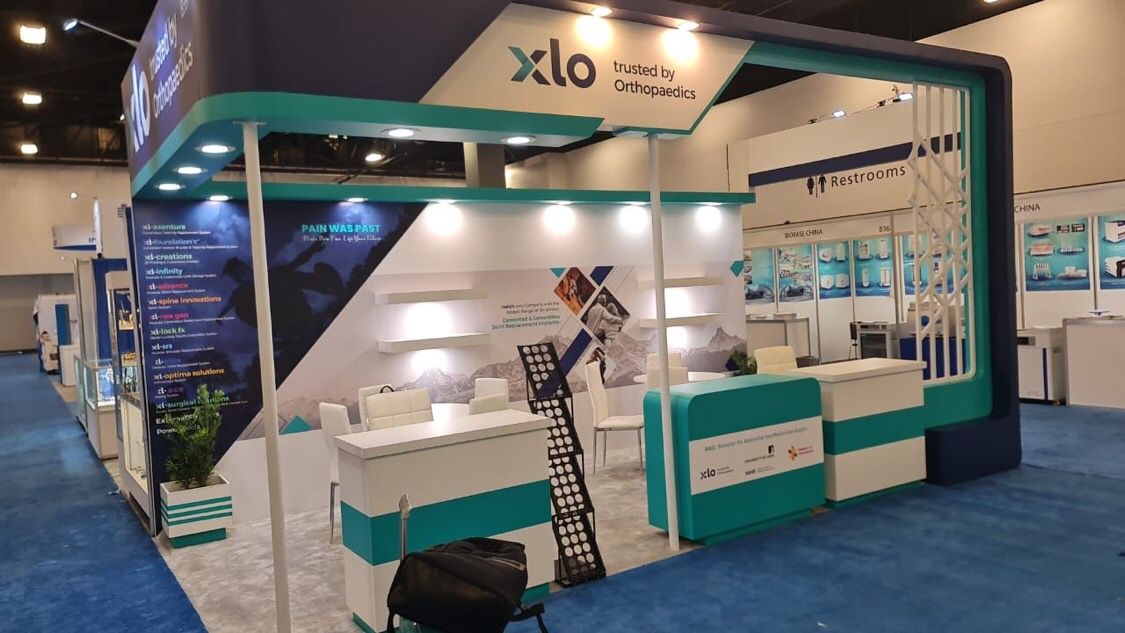When it comes to trade shows, exhibitions, or expos, your booth is more than just a physical space—it’s your brand’s first impression. A well-designed and strategically constructed exhibition stand can attract more visitors, spark meaningful conversations, and ultimately lead to business success. But behind every eye-catching booth is a reliable and skilled expo stand builder.
So, how do you ensure you pick the right partner to bring your vision to life? Here’s a detailed guide on how to choose the right expo stand builder for your next event.
1. Understand Your Objectives and Budget
Before even beginning your search for an expo stand builder, you must clearly define your goals:
- Are you launching a new product?
- Is your goal to generate leads?
- Do you want to create brand awareness or build partnerships?
Your objectives will determine the kind of booth design and features you need. For instance, a tech product launch may require interactive elements, while a branding booth may emphasize visuals and storytelling.
Alongside your goals, establish a realistic budget. Remember, prices vary widely based on:
- Booth size (e.g., 10×10 vs. 40×40)
- Custom features
- Materials used
- Graphics and technology integration
- Location and logistics
Having a defined budget helps you shortlist builders who offer services within your financial scope.
2. Evaluate Experience and Expertise
One of the most critical factors is the experience of the stand builder. Look for companies with:
- At least 5+ years in the industry
- Proven track record of executing similar projects
- Experience across industries and custom trade show exhibits sizes
A company that has handled both small and large-scale exhibitions will be better equipped to handle complexities such as tight timelines, intricate designs, and last-minute changes.
Additionally, ensure they are up to date with modern trends like:
- Modular stand design
- Sustainable materials
- LED technology
- Augmented reality integrations
- Smart storage and multi-functional designs
Ask for a portfolio to assess their design style, innovation, and execution quality.
3. Check Their In-House Capabilities
Some builders outsource most of their work, which can lead to quality issues or delays. Ask whether they offer in-house services such as:
- 3D booth design and rendering
- Carpentry and fabrication
- Graphic printing
- Storage and logistics
- On-site installation and dismantling
An in-house team ensures better quality control, faster turnaround, and lower chances of miscommunication.
Also, check if they offer turnkey solutions, where everything from concept to construction and execution is managed under one roof. This reduces stress on your end and streamlines the process.
4. Ask About Customization Options
Not all exhibition booth design ideas are created equal. Some companies rely on cookie-cutter templates, while others offer bespoke stand designs tailored to your brand identity.
A reliable stand builder should:
- Listen to your vision and goals
- Offer multiple concepts based on your requirements
- Be willing to make revisions
- Include your branding elements creatively
- Recommend layout and visitor flow ideas
Customization is key in making your stand stand out in a sea of competition.
5. Read Client Testimonials and Case Studies
A reputable stand builder will have a list of satisfied clients. Check their:
- Google reviews
- Testimonials on their website
- LinkedIn endorsements
- Case studies with photos, metrics, and outcomes
Pay close attention to reviews mentioning:
- Timeliness
- Communication
- Flexibility
- Creativity
- Support during emergencies or on-site issues
You can also ask for client references to speak with past clients directly.
6. Review Past Projects and Booth Types
Different expos and industries demand different booth types:
- Island booths (open from all sides)
- Inline booths (open from the front)
- Double-decker stands
- Modular and reusable booths
- Portable booths
Check whether the builder has experience with the type and size of booth you’re planning. For example, if you’re planning a 30×30 trade show booth for a major U.S. expo, your builder should have experience with large-format displays and complex structures.
Review their project gallery or ask them to walk you through previous builds that are similar to yours.
7. Consider Logistics and Local Presence
Location plays a significant role in expo stand construction. A local or regional builder:
- Understands local venue rules and regulations
- Has familiarity with union labor requirements
- Can offer faster on-site support
- Helps reduce shipping and logistics costs
If you’re participating in multiple international expos, consider choosing a builder with global capabilities or local partnerships in major cities like Las Vegas, Dubai, London, or Frankfurt.
Also, ask about logistical services, such as:
- Shipping
- Warehousing
- Setup and dismantling
- On-site support
8. Assess Communication and Project Management
Even the best design can fail without strong project management. A good expo stand builder will assign a dedicated project manager who:
- Serves as your single point of contact
- Coordinates between design, fabrication, and logistics teams
- Keeps you updated at each milestone
- Resolves challenges quickly
Ask about their process—from ideation to handover—and the tools they use (e.g., Gantt charts, project tracking software, 3D previews).
Effective communication minimizes misunderstandings, errors, and costly last-minute changes.
9. Prioritize Innovation and Technology
Trade shows are evolving, and so should your booth. Ask if the stand builder offers:
- AR/VR integrations
- Touchscreens
- Digital kiosks
- QR code scanning systems
- LED video walls
Using technology can increase engagement and help you track visitor interactions for post-show follow-up. Builders who stay ahead of trends can help you stand out and deliver a memorable experience.
10. Examine Safety, Compliance, and Insurance
Trade show booths must comply with various safety and venue regulations. Your builder should be familiar with:
- Local fire codes
- Electrical and lighting standards
- Maximum height and structure limitations
- ADA (Americans with Disabilities Act) compliance, if applicable
Also, ask if they carry insurance to cover liability during trade show exhibit builders Seattle setup, dismantling, or transport. A builder who values safety and compliance reduces your risk of fines, delays, or accidents.
11. Compare Pricing and Value
While budget is important, don’t choose a builder based solely on low pricing. Evaluate:
- What’s included in the cost (design, graphics, labor, etc.)
- Whether pricing is fixed or subject to variation
- Payment terms and cancellation policies
- Cost breakdown (materials, labor, rental vs. purchase options)
You may pay a bit more for a reliable, creative, and flexible builder—but the ROI in terms of brand perception, leads, and exposure is often well worth it.
12. Ask the Right Questions
Here are some key questions to ask potential expo stand builders:
- Can you show us designs similar to our concept?
- What is your turnaround time for design and construction?
- How do you handle on-site emergencies or last-minute changes?
- Do you offer rental options or only custom builds?
- What kind of support do you provide during the event?
- Can we reuse or modify the stand for future events?
The answers will help you assess if they’re the right fit for your long-term trade show strategy.
Conclusion
Choosing the right expo stand builder can make or break your event presence. The right partner will not only bring your ideas to life but also help you tell your brand story, engage with your audience, and stand out from the competition.
By focusing on experience, in-house capabilities, customization, project management, technology integration, and client feedback, you’ll be equipped to make an informed decision that maximizes your trade show investment.
Take your time, do the research, and partner with a stand builder who aligns with your brand vision—and success will follow.


